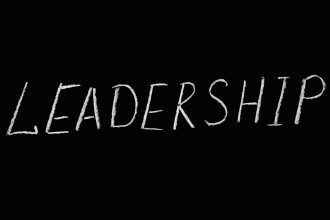Political Science Degree: Your 2025 Guide to Top Careers & Plans?
Are you considering a future where you can influence policy, shape communities, or even lead nations? A Political Science Degree might be your ultimate launchpad. This isn’t just about memorizing historical dates; it’s about developing the critical thinking, analytical prowess, and communication skills essential for understanding and navigating our complex world. But what exactly does a political science program entail, and how can you best plan your academic journey for maximum impact?
In this comprehensive guide, we’ll dive deep into the world of political science. We’ll explore the different degree pathways, uncover the vast array of career opportunities, and even help you envision a sample four-year plan to set you on the right track. Get ready to discover how a strong foundation in political science can empower you to make a tangible difference.
Unpacking the Political Science Degree: What to Expect
A Political Science Degree is a broad and dynamic field of study that examines governments, public policies, political processes, and political behavior. Students delve into the theoretical and practical aspects of politics, both domestically and internationally. This major equips you with a robust framework for analyzing power structures, understanding societal issues, and engaging with the mechanisms of governance.
The curriculum typically covers areas like political theory, comparative politics, international relations, and American government. Beyond specific topics, the core of the degree lies in developing a keen analytical mind, strong research abilities, and persuasive communication skills—assets highly valued in any professional setting.
BA vs. BS: Understanding Your Political Science Degree Options
When pursuing a Political Science Degree, you’ll often encounter two primary options: a Bachelor of Arts (BA) and a Bachelor of Science (BS). While both lead to the same major, their emphasis can differ significantly.
- Bachelor of Arts (BA) in Political Science: This is generally the more common path. A BA typically emphasizes a liberal arts foundation, focusing on qualitative research, theoretical frameworks, and extensive writing. It often allows for more flexibility with electives, encouraging students to explore minors or double majors in humanities or social sciences.
- Bachelor of Science (BS) in Political Science: A BS degree usually features a stronger emphasis on quantitative methods, statistical analysis, and empirical research. It often includes more required courses in mathematics, statistics, or computer science, preparing students for roles that demand data-driven analysis in public policy or political consulting.
Choosing between a BA and a BS depends on your career aspirations and academic strengths. If you envision a path in law, journalism, or policy analysis with a strong qualitative bent, a BA might be ideal. If you’re drawn to data science, campaign analytics, or rigorous policy evaluation, a BS could be a better fit.
Why Pursue a Political Science Degree? Career Prospects and Skills
A Political Science Degree opens doors to an incredibly diverse range of career paths. Graduates are highly sought after for their ability to think critically, communicate effectively, and understand complex social and political dynamics. The skills you acquire are transferable across numerous industries.
Key skills developed through this major include:
- Critical Thinking & Analysis: Evaluating information, identifying biases, and forming well-reasoned arguments.
- Research & Data Interpretation: Conducting thorough investigations and making sense of complex data.
- Written & Oral Communication: Articulating ideas clearly and persuasively, both on paper and in presentations.
- Problem-Solving: Identifying challenges and developing innovative solutions for policy and societal issues.
- Ethical Reasoning: Understanding moral dimensions in political decisions and public service.
Graduates often find fulfilling careers in areas such as:
- Government & Public Service: Working for local, state, or federal agencies, foreign service, or international organizations.
- Law: A strong foundation for law school, leading to careers as attorneys, judges, or legal analysts.
- Non-Profits & Advocacy: Leading social change, lobbying, or managing programs for advocacy groups.
- Campaign Management & Political Consulting: Strategizing for political campaigns and advising candidates.
- Journalism & Media: Reporting on political events, analyzing policy, or working as political commentators.
- Business & International Relations: Navigating global markets, corporate social responsibility, or international trade.
For more insights into potential career paths, the U.S. Bureau of Labor Statistics provides valuable information on political scientists and related occupations.
Crafting Your Four-Year Political Science Degree Plan (Sample 2024-25)
Planning your academic journey is crucial for maximizing your educational experience and preparing for post-graduation success. While specific course names and requirements will vary by institution, here’s a general framework for a Political Science Degree four-year plan, designed for the 2024-25 academic year and beyond.
First Year Foundations: Key Courses for a Political Science Degree
Your initial year will focus on core introductory courses and general education requirements, building a broad base of knowledge.
- Introduction to Political Science: An overview of the field, its sub-disciplines, and fundamental concepts.
- American Government & Politics: Exploration of the U.S. political system, institutions, and processes.
- Introduction to Macro/Microeconomics: Understanding economic principles that influence policy.
- College Writing & Communication: Developing essential academic writing and presentation skills.
- Electives/General Education: Courses in humanities, social sciences, or natural sciences, fulfilling university-wide requirements.
Sophomore & Junior Years: Deepening Your Political Science Degree Specialization
These years typically involve more specialized political science courses and potentially the beginning of a minor or concentration.
You might take courses in:
- Comparative Politics: Examining political systems across different countries.
- International Relations: Studying global politics, diplomacy, and international organizations.
- Political Theory: Delving into foundational political philosophies and thinkers.
- Research Methods in Political Science: Learning quantitative and qualitative research techniques.
- Statistics for Social Sciences: Essential for data analysis and interpretation.
Senior Year: Capstone, Internships, and Career Preparation
Your final year is often dedicated to advanced seminars, a capstone project, and practical experience.
Expect to engage in:
- Advanced Seminars: In-depth study of specific topics like Public Policy Analysis, Constitutional Law, or Political Psychology.
- Capstone Project/Thesis: An independent research project demonstrating mastery of the field.
- Internship: Gaining real-world experience in government, non-profits, or political organizations.
- Electives: Further specialization or completing minor requirements.
Beyond the Classroom: Internships and Experiences for Political Science Majors
While coursework is fundamental, practical experience is invaluable for anyone pursuing a Political Science Degree. Internships, study abroad programs, and participation in student organizations can significantly enhance your resume and provide crucial networking opportunities.
Consider internships with:
- Congressional offices or state legislatures.
- Non-governmental organizations (NGOs) or advocacy groups.
- Local government agencies or city planning departments.
- Political campaigns or consulting firms.
- International organizations like the UN or embassies.
Engaging with academic associations, such as the American Political Science Association (APSA), can also provide resources for internships, scholarships, and career development.
Conclusion: Your Path to a Fulfilling Political Science Degree
Embarking on a Political Science Degree journey is an investment in a future where you can truly make a difference. From understanding the nuances of global diplomacy to shaping local policy, the skills and knowledge gained are profound and versatile. Whether you choose a BA or a BS, a well-planned academic path, complemented by practical experiences, will prepare you for a multitude of impactful careers.
Don’t just observe the world; learn how to actively participate in shaping it. Explore university programs today and take the first step towards a dynamic and rewarding career with your political science degree!
Unlock your future with a Political Science Degree! This guide explores career paths, BA vs. BS options, and a sample four-year plan to help you navigate your academic journey and make a lasting impact.
Political Science Degree student studying diverse global politics and policy analysis with a background of government buildings and a world map.
Featured image provided by Pexels — photo by RDNE Stock project









